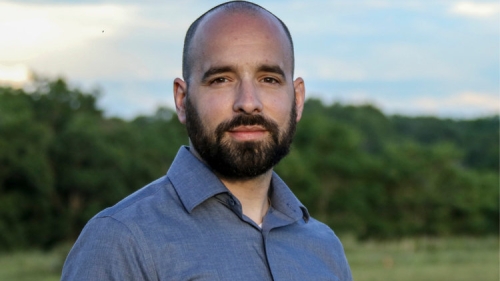Mario Khreiche, visiting assistant professor in the Department of Media, Culture, and Communication, studies the future of work, online platforms, cybernetics, the history of computing, and video games. Currently, his work focuses on the ways that automation technologies change the nature, environments, and experiences of work. His writing is featured in Fast Capitalism, Eludamos, and forthcoming in the Journal of Environmental Media. We spoke to him about his research interests.

What are you currently working on?
I'm working on a project on learning management systems (LMS) and other digital tools in higher education. As most instructors, I've used LMS increasingly and as with most platforms I've come to rely on the convenience of having many applications in one place. But it's a double-edged sword and there are some concerning effects for students, instructors, and universities. Students (and instructors) are under a lot of scrutiny in these systems and some of the LMS providers are experimenting with score-based and predictive analytics for students. In addition, it's yet another industry that frames labor as participation, engagement, and community support.
Could you tell us a little about your research in the future of work?
The future of work is a broad category for topics related to digitization, software, robotics, and proposals for a universal basic income. The conversation is typically driven by folks who speak of technologies as innovations, game changers, new industrial revolutions, and so on, but there is important research that looks at the labor systems supporting what is so often simply considered automation. In many contexts, automation is probably better described as surveillance, gamification, and crowdsourcing, since platform providers rely on constant activity and user engagement for revenues. To train software and robots requires a lot of data and companies have much to gain from monitoring closely how humans perform tasks such as interpreting digital images, driving a car, or picking a warehouse shelf. There's a double payoff in tracking your workers in this way, because they complete a job and in doing so provide training data.
The pandemic shows that there needs to be wide protections for people who are employed, unemployed, and underemployed."
Do you think that work will be forever altered by the global pandemic? How has your work changed?
For many people - and I include myself - that seems to be the case. I think at the moment around 30% of the workforce is able to work from home, but that number may even be higher. Some people say that we've jumped ahead a few years in terms of working from home and maybe that's the case. At the same time, it's important to remember that so many of the services we all depend on daily require manual work, which is often low-pay and without good benefits. Much of the workplace tracking I mentioned earlier actually happens in these so-called frontline industries. In my view, this isn't something better technology can solve. Instead, the pandemic shows that there needs to be wide protections for people who are employed, unemployed, and underemployed.
Related Articles
Studying Queer and Transgender Lives: An Interview with New Faculty Member Cassius Adair
Cassius Adair, a visiting assistant professor in the Department of Media, Culture, and Communication, is an independent audio producer, writer, and researcher. We asked him about his scholarship on queer and transgender lives.
The Place Where Video Games, Gender, and Sexuality Meet: An Interview with New Faculty Member Whitney Pow
Whitney Pow is a media studies scholar whose research focuses on queer and trans histories of video games, software, and computational media. We spoke to them about their scholarship and art.
Making Media Accessible to the Deaf and Hard of Hearing: an Interview with Destiny Lopez
In award-winning research, master's candidate Destiny Lopez proposes ways to make media accessible to the deaf and hard of hearing.



